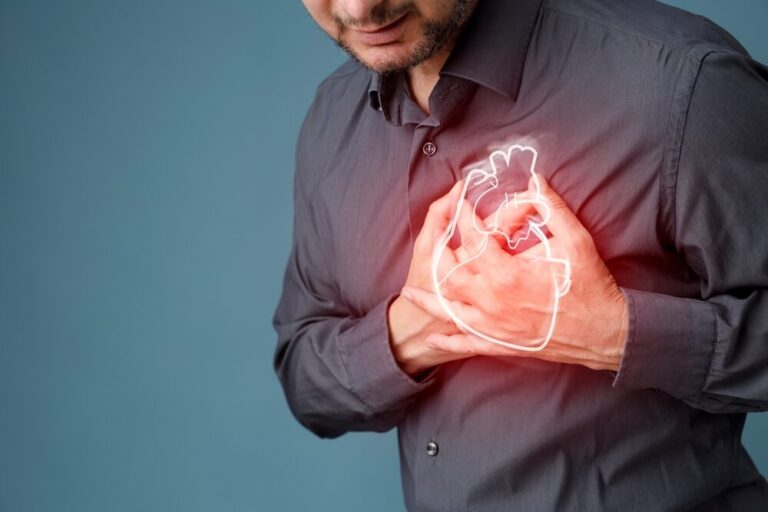In the chaotic whirlpool of modern life, stress has become a ubiquitous companion, lurking in the shadows of our daily routines. One of the most unsettling manifestations of this stress is the sensation of chest pressure, a phenomenon that can send waves of panic through even the calmest individuals. But what exactly triggers this uncomfortable feeling?

At the heart of this issue lies the body’s intricate response to stress, known as the “fight or flight” reaction. When faced with a stressful situation, the brain sends a distress signal to the hypothalamus, the command center that orchestrates the release of stress hormones like adrenaline and cortisol. These hormones flood the bloodstream, preparing the body to either confront or flee from the perceived threat.
Adrenaline, often dubbed the “emergency hormone,” causes the heart to pound faster and harder, increasing blood flow to essential organs and muscles. This sudden surge in heart activity can lead to the sensation of chest pressure or tightness. The rapid heartbeat, combined with heightened blood pressure, creates a feeling akin to a heavy weight pressing down on the chest.
Simultaneously, the body’s muscles tense up, readying themselves for action. This muscle tension isn’t confined to the arms or legs; the chest muscles also contract, contributing to the sensation of tightness. It’s as if the body is bracing itself for impact, even when there’s no physical threat in sight.
Moreover, stress often leads to shallow, rapid breathing, or hyperventilation. This type of breathing disrupts the balance of oxygen and carbon dioxide in the blood, causing symptoms such as lightheadedness, dizziness, and yes, chest pressure. The feeling can be particularly alarming because it mimics the signs of a heart attack, leading many to believe they are experiencing a cardiac event.
The mind, ever the trickster, can exacerbate these physical symptoms. Anxiety and panic can amplify the sensation of chest pressure, creating a vicious cycle where the fear of the symptom intensifies the symptom itself. It’s a cruel irony that the more one worries about the chest pressure, the more pronounced it becomes.
However, not all chest pressure is purely stress-induced. It’s crucial to differentiate between stress-related discomfort and symptoms of more serious conditions such as angina or a heart attack. Angina, caused by reduced blood flow to the heart, presents with chest pain that may radiate to the shoulders, arms, neck, or jaw. Unlike stress-induced pressure, angina often occurs during physical exertion and eases with rest.
In contrast, a heart attack involves the sudden blockage of a coronary artery, leading to severe chest pain, shortness of breath, and other symptoms like nausea or sweating. This is a medical emergency requiring immediate attention. Thus, it’s essential to consult a healthcare professional to rule out these conditions if chest pressure persists or is accompanied by other worrying symptoms.
In conclusion, chest pressure during stress is a complex interplay of physiological and psychological factors. The body’s automatic stress response, muscle tension, and altered breathing patterns all contribute to this unsettling sensation. While it’s often a benign manifestation of stress, distinguishing it from serious cardiac conditions is vital. Understanding this can help alleviate the fear and manage the stress more effectively, paving the way for a calmer, healthier life.

Stress Management
Mastering the Art of Stress Management: A Comprehensive Guide

Why the Beach Is Good for Your Mental Health
The beach, with its vast expanse of shimmering sands and the rhythmic lull of waves,

Why Is Life So Hard? How to Cope When You Feel This Way
Life, with its intricate tapestry of experiences .....
